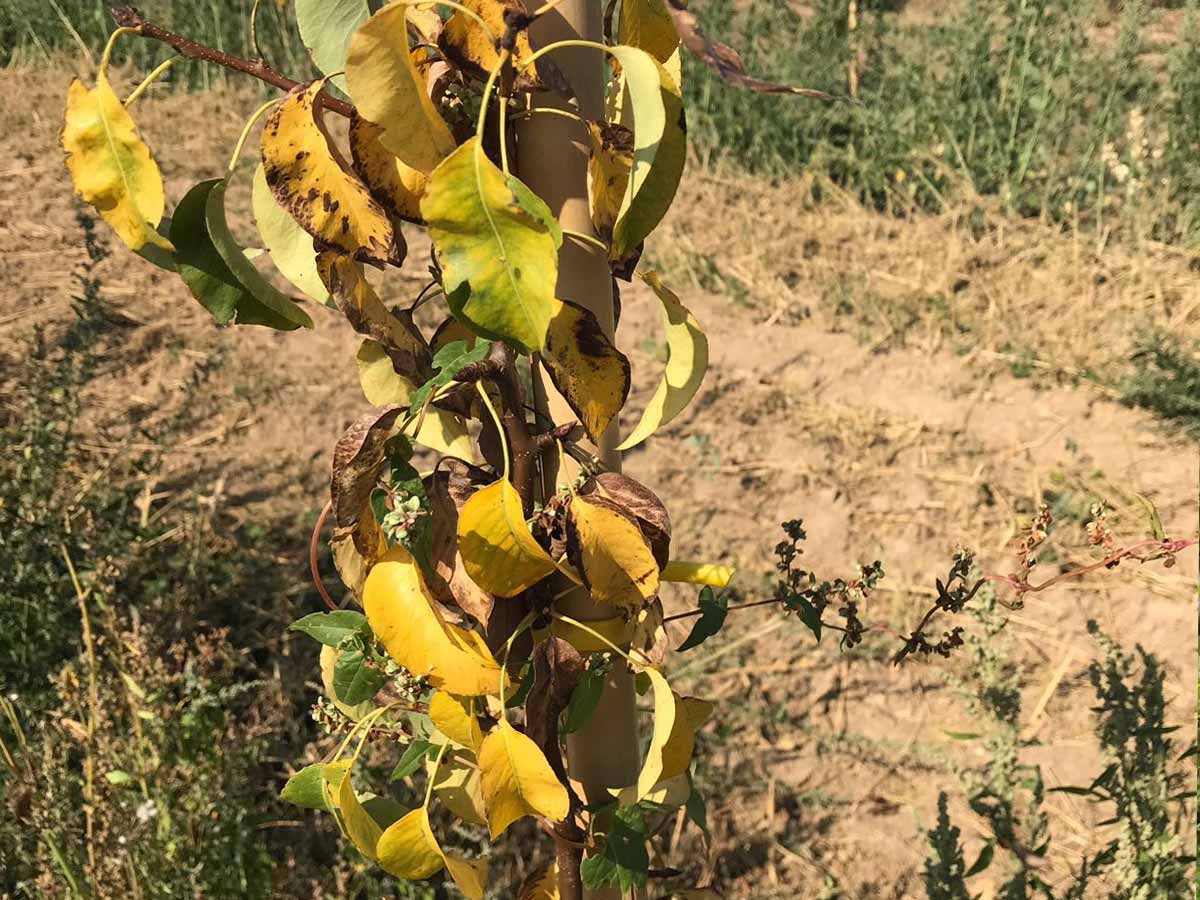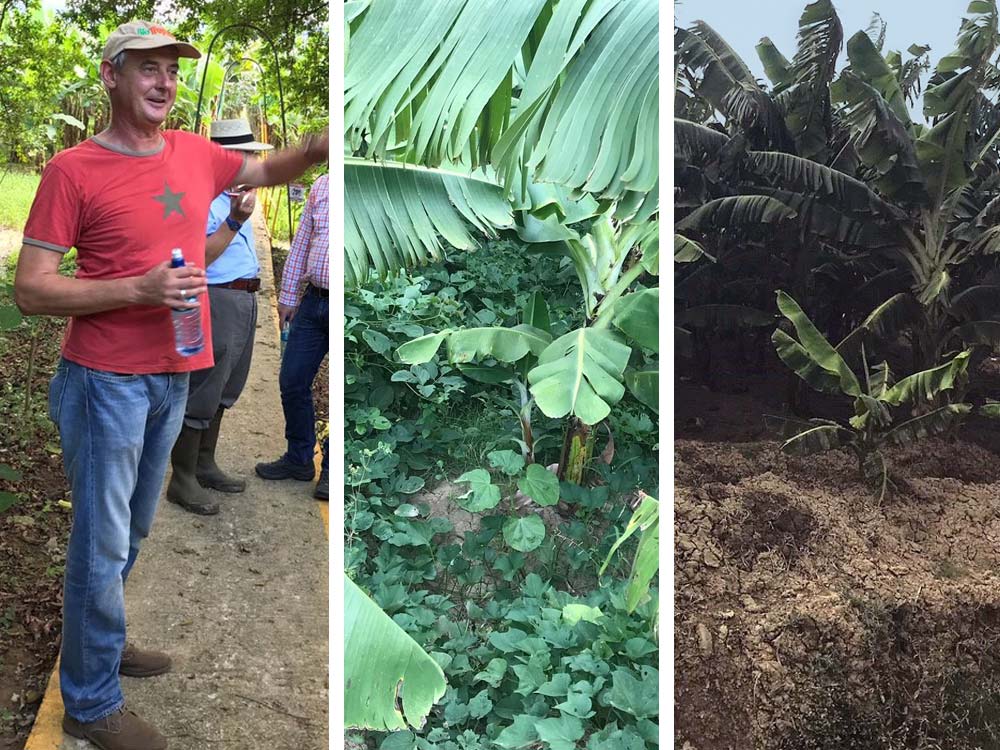“We are dealing with extreme conditions” – How Demeter farmer Bois survives the hot summer

Today, when so many things are planned, well-structured and clocked, agriculture usually remains an unpredictable matter. This economic sector, however, is highly sensitive. No less than the basic existential need for food is dependent on external factors such as weather, climate and other general conditions. Because: Everyone relies on foodstuffs.
It’s summer now, and it has hardly rained for weeks in Europe. This is not unusual; after all, this season is exemplary of sun and heat. But these are not easy conditions for farmers, since plants need a lot of water in this period. Organic farming promotes humus formation in soils, which can then hold water better, but a persistent drought represents a challenge even for organic farmers.
We asked Hubert Bois about his current experiences – the BioTropic partner is also an organic farmer with long-standing practical experience. He has grown fruit and vegetables following Demeter standards since the start of the 80s. His fields are in Meckenheim near Bonn. “I’m on the field every day and I look at the plants and the soil. I’ve realised that the damsons this year are only half as big as they normally are around this time of year. Our apple trees react to the weather stress by shedding their leaves, and fruit has developed early this year. We will therefore harvest ahead of schedule, which is generally okay. But the apples still haven’t reached an optimal selling size. It’s hard for our young trees, our new plantings. They haven’t rooted properly yet, so they can’t absorb and store water well. Due to the persistent heat, our currants have also withered on the bushes. We were able to harvest most of the fruit, but we eventually had to stop. This year, however, we have handled the situation relatively well, and you can find a wide selection at our farmer’s market.”
And what about the vegetables? “Our light vegetables are very reliant on regular irrigation. Fortunately, there is no water shortage in the soil itself. The groundwater reservoir in our area is well-filled, and is filled up again naturally throughout the year. For irrigation, we pump up the water we need from a depth of 66 metres.”
“Our harvest workers also have to struggle with the heat. We start the harvest very early in the morning and have a lunch break for several hours before proceeding in the evening, so that our workers can return home unharmed. We also provide them with a great amount of water daily”, Bois explains.
How does Bois see the future? “I’ll be planting bananas in the future”, he jokes. “But seriously,” he concludes, “farmers always face challenges, because nature is not predictable. But weather conditions have become more extreme in the last few years. So far we have always been sensible about it at our farm”.
What is the situation on the other side of the Atlantic?
The Dominican Republic.
Volker Schmidt, BioTropic Agricultural Engineer on site reports:“We expect the annual storm season from September. We planted our new finca in Villa Lobo, which was flooded in 2017, for 80,000 USD and it is just before the harvest period now. Hopefully it won't be all gone in a month again.

"Otherwise the climate this year has been almost normal. But the rain, which normally falls in May, unfortunately didn’t appear this year. So it’s very dry everywhere on the island. It has generally rained less and less in the last few years. However, the reasons for this are self-inflicted, such as the almost complete deforestation in the Haitian part of the island. Forests in the Dominican Republic are also found less and less. But, without forests, floods and droughts can aggravate the consequences for man and for the environment.
Forest areas regulate the earth’s climate, they produce oxygen and also clean our air. The provide protection from erosion, floods and avalanches. They also store water and carbon.”
More links on the topic:
• Aftermath of storm damage in the Dominican Republic
• Sunlight brings independence: watering organic bananas with the aid of solar energy
Text: Visnja Malesic | Volker Schmidt
Pictures: Hubert Bois | BioTropic GmbH | Naturkost West GmbH
Version from August 2018
Tags: Volker Schmidt , Hubert Bois, Dominican Republic (GB), weather, climate, heat





